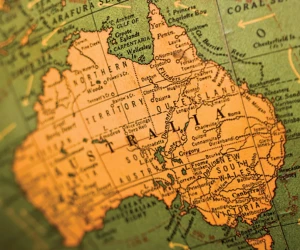Australia’s Green party files blanket gambling ad ban bill, government response to Murphy Report due by end of year

Since June 2023, the government has been considering its response to the 2023 Murphy Report, which outlined 31 recommendations for reforming the gambling sector in Australia. Media agencies have been in talks with the government over the difficulties they could face if gambling ads are banned. The government said all relevant stakeholders are being included in the process.
Various stakeholders, including current and former politicians and addiction charities, have supported calls for a ban and accused the party of ignoring their arguments.
But the prime minister, Anthony Albanese, has publicly dismissed these requests, telling parliament in September he felt campaigners were ultimately focused on banning gambling outright.
Communications minister Michelle Rowland told ABC TV today (11 October) that she will announce her plan to tackle gambling ads by the end of 2024.
However, parliament has only three sitting weeks left before it rises for the year at the end of November.
“We’re looking at the most robust way in which we can make this effective and ensure that those harms are minimised,” she said.
Green party demands inquiry into government response to Murphy Report
The latest push for a blanket ban comes from the Green party, whose bill seeks to prohibit gambling ads on TV, radio, print and online. The Interactive Gambling Amendment (Ban Gambling Ads) Bill 2024 faced its second reading in the senate on 9 October.
It said a comprehensive ban could help to stop “the onslaught of gambling advertising that encourages risky betting behaviours and lessen its harms on our communities”.
“Such a ban has been recommended time and time again by experts and there is wide public support. It is what the community expects,” the bill read.
“It will be extremely disappointing if the major parties continue to show they don’t have the guts to stand up to the gambling lobby. Australians will wonder whether a dinner with Sportsbet or a free ticket to the Melbourne Cup is worth more than the lives of their kids.”
The bill is being championed by Green senator Sarah Hanson-Young, who has also requested that the Environment and Communications References Committee investigate the impact of gambling and gambling ads on Australian communities, families and children.
The inquiry, Hanson-Young said, would also investigate the government’s response to the Murphy Report and what the senator insists is a lack of action in protecting vulnerable groups from gambling harm.
“This inquiry is important because what we’ve seen is, despite the promises made by the government and despite a unanimous report introduced and tabled in the house of representatives over 12 months ago that recommended a total ban on gambling advertising – a report that was supported by all sides of politics – those recommendations are sitting on a shelf in the minister’s office not being acted upon,” she told the senate on 9 October.
The debate was adjourned, with Hanson-Young to continue her speech at a later date.
“We’re in trouble if we rely on gambling ads to fund national media”
During the debate Hanson-Young also touched on comments from government minister Bill Shorten, defending free-to-air media in the country and insisting a ban on gambling advertising would seriously undermine it.
In response she said the country was “really in trouble” if the local and national media had to rely on gambling addiction to fund their news organisations.
What’s next for the bill?
In Australia’s senate, a bill has two readings, if it passes that stage it hits the senate committee phase and could possibly be referred to a committee for inquiry. If successful, the wider senate will discuss the policy and subsequently vote on its final form. It must then receive royal assent from the sovereign to become law.
